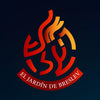
Tamuz 17 A Fasting Day
This Sunday, June 27th, is the 17th of Tammuz on the Hebrew calendar, and it is a day of fasting, and it also marks the beginning of the "three weeks" period.
Why do we fast on this day?
Let's see...
The Mishnah points out five tragic events that occurred on this day, the 17th of the month of Tammuz:
-The first tablets were broken when Moses descended from Mount Sinai and saw the golden calf and the rites that accompanied it.
-The offering of the daily sacrifice in the first Beit Hamikdash (the first Great Temple) was suspended, because the Cohanim could not find any lambs to offer in sacrifice.
-A breach was made in the wall of the City of Jerusalem during the time of the Second Beit Hamikdash.
-At the time of the Second Great Temple, Apostomus the wicked, burned the Torah.
-An idol was placed inside the Sanctuary.
There are days when the entire people of Israel fast as a result of the calamities that occurred.
The purpose of these fasts is to awaken the person's heart to repentance by remembering his own negative acts,
as well as those of their ancestors and through this "Return to the Good Path", as the verse in Leviticus 26:40, "And they shall confess their sins and the sin of their fathers."
Each person should use these days for self-reflection and repentance, since the essential basis of a fast day is to motivate people to repent, as the verse states regarding the people of Nineveh: Jonah 3:10 "And Hashem saw their deeds"
It is also important to emphasize that on this day (17 of Tammuz) we begin the period of three weeks (21 days) between the 17th of Tammuz and the 9th of the month of Av, called Bein Hametzarim, "Among the afflictions"
In the verse Lamentations 1:3 expresses: "All her persecutors overtook her in the midst of afflictions"
The Sages explained that they refer to the days of affliction between the 17th of Tammuz and the 9th of Av, where many tragedies occurred among our people.
During those weeks, we tone down our rejoicing; no weddings are held, and we refrain from listening to music, dancing, taking pleasure trips, wearing new clothes or other items, or getting haircuts or shaving.
(Excerpts from Sefer Hatoda)
The Breslev Garden recommends:
